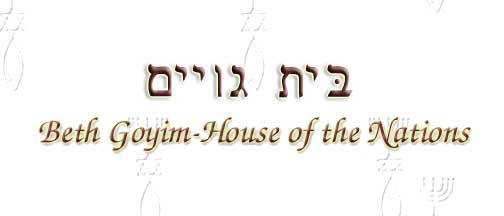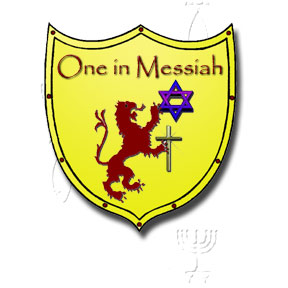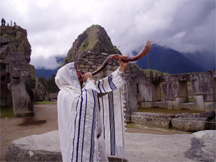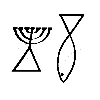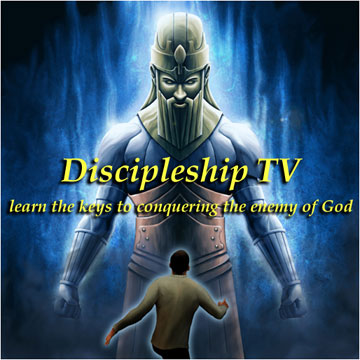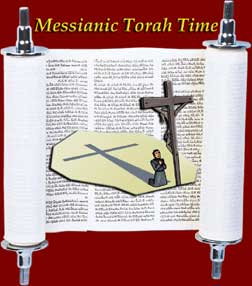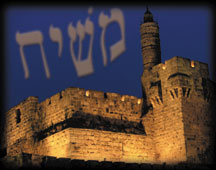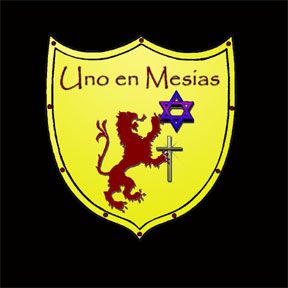
P105 Parash 1 Beresheet/Genesis 1:1-6:8 “In the Beginning”
Synopsis – The Parasha name comes from the first words of the first line of that particular Scripture. B’resheet 1:1 In the Beginning. This particular Parasha has an incredible amount of information. From Elohiym (God) forming our universe by His word, to the Triune nature of God being reviled; Deception; Lies; Sin; Banishment from the Garden; Murder; Deceit, to finally the giants (Nephilim) mating with humans.
Theme & Message
Chapter 1: Elohiym “God’s” creates the world and everything in it, on it, and above it in 6 days.
Chapter 2: The formation of man. How Elohiym breaths life into the nostrils of His creation. The first Mitzvoh (Commandment) from God. Don’t eat of the tree. The protection of His child in protecting him from the world. The compassion and love God shows for man with not wanting him to be alone. Forms Chavah from Adam rib.
Chapter 3: The Fall. All though being under grace and having only one (1) rule to follow Adam & Chavah fall to temptation and sin. Our adversary hasatan (satan) deceives Chavah into eating the forbidden fruit from the tree the Lord said not to eat from. The killing of the first animal.
Chapter 4: Offerings, Murder and lies. The Lord accepts one gift but not the other. The promise of protection even in the wilderness for God’s chosen people.
Chapter 5: The Generations from Adam to Noach. The hidden message in the names when translated into there English meanings.
Chapter 6: The depravity of mankind when no rules are given. The sexual relations of women to the Nephilim. The Lord’s anger with His creations. But Noach finds grace in the Lord’s sight.
The Days Of Creation
Here's a list of what Elohim created on each of the six days of creation:
Day 1: The heavens, the earth, light and darkness.
Day 2: Heaven
Day 3: Dry land, the seas, and vegetation.
Day 4: The sun, the moon and the stars. (lights)
Day 5: Living creatures in the water, birds in the air.
Day 6: Land animals and people.
Day 7: Elohim "rested".
How Long Is A Day?
There is a theory that says each of God's days in B’resheet/Genesis were actually millions of years for us. Is this true? Maybe we need to ask what does the word "day" mean in Genesis?
The Hebrew word "yom" is translated as day in B’resheet. Just as our word "day" can have different meanings based on its context, so can the word "yom". For example, in the TANAK “Old Testament” "yom" is translated to mean a 24 hour day 1109 times. It means a long, long period of time--such as an age--about nine times.
However, every time the word "yom" is used with the term evening or morning in the Bible, it means a regular 24 hour day.
Every time the word "yom" is used with a number, such as "40 yom" (40 days), it means a regular 24 hour day.
Message # 400 & 401 go greatly into depth on the first line and the first word of Scripture
Gen 12:2 I will make of you a great nation, I will bless you, and I will make your name great; and you are to be a blessing.
Gen 12:3 I will bless those who bless you, but I will curse anyone who curses you; and by you all the families of the earth will be blessed."
I will make of you a great nation,
I will bless you,
I will make your name great;
you are to be a blessing.
I will bless those who bless you,
I will curse anyone who curses you;
by you all the families of the earth will be blessed."
With this we may compare God's seven-fold covenant with Israel.
Then follows the seven-fold blessing: -
Exo 6:6 "Therefore, say to the people of Isra'el: 'I am Adonai. I will free you from the forced labor of the Egyptians, rescue you from their oppression, and redeem you with an outstretched arm and with great judgments.
Exo 6:7 I will take you as my people, and I will be your God. Then you will know that I am Adonai your God, who freed you from the forced labor of the Egyptians.
Exo 6:8 I will bring you into the land which I swore to give to Avraham, Yitz'chak and Ya`akov — I will give it to you as your inheritance. I am Adonai.' "
I will bring you out from
Egypt.
I will rid you of their bondage.
I will redeem you.
I will take you to Me for a people.
I will be to you a God.
I will bring you in unto the land.
I will give it to you.
Chapter 5
Since the ten Hebrew names are proper names, they are not translated but only transliterated to approximate the way they were pronounced. The meaning of proper names can be a difficult pursuit since direct translations are not readily available. Many study aids, such as conventional lexicons, can prove superficial when dealing with proper names. Even a conventional Hebrew lexicon can prove disappointing. A study of the original roots, however, can yield some fascinating insights. (It should be recognized, however, that the views concerning the meaning and significance of the original roots are not free of controversy and are subject to variant readings. This is why we receive so many questions or comments on variations.)
Adam
The first name,
Adam,
comes from adomah, and means "man." As the first man, that seems
straightforward enough.
Seth
Adam's son was named Seth, which means "appointed." When he was born Eve said, "For God hath appointed me another seed instead of Abel, whom Cain slew."
Enosh
Seth's son was called Enosh, which means "mortal," "frail," or "miserable." It is from the root anash: to be incurable; used of a wound, grief, woe, sickness, or wickedness. (It was in the days of Enosh that men began to defile the name of the Living God. )
Kenan
Enosh's son was named Kenan, from which can mean "sorrow," dirge," or "elegy." (The precise denotation is somewhat elusive; some study aids unfortunately presume an Aramaic root synonymous with "Cainan.") Balaam, looking down from the heights of Moab, employed a pun upon the name of the Kenites when he prophesied their destruction.
Mahalalel
Kenan's son was Mahalalel, from mahalal, which means "blessed" or "praise"; and El, the name for God. Thus, Mahalalel means "the Blessed God." Often Hebrew names included El, the name of God, as Dani-el, "God is my Judge," Nathani-el, "Gift of God," etc.
Jared
Mahalalel's son was named Jared, from the verb yaradh, meaning "shall come down." Some authorities suggest that this might have been an allusion to the "Sons of God" who "came down" to corrupt the daughters of men, resulting in the Nephilim ("Fallen Ones") of Genesis 6.
Enoch
Jared's son was named Enoch, which means "teaching," or "commencement." He was the first of four generations of preachers. In fact, the earliest recorded prophecy was by Enoch, which amazingly enough deals with the Second Coming of Christ.4
Methuselah
The Flood of Noah did not come as a surprise. It had been preached on for four generations. But something strange happened when Enoch was 65, from which time "he walked with God." Enoch was given a prophecy that as long as his son was alive, the judgment of the flood would be withheld; but as soon as he died, the flood would be sent forth.
Enoch named his son to reflect this prophecy. The name Methuselah comes from two roots: muth, a root that means "death"5 ; and from shalach, which means "to bring," or "to send forth." Thus, the name Methuselah signifies, "his death shall bring."6
And, indeed, in the year that Methuselah died, the flood came. Methuselah was 187 when he had Lamech, and lived 782 years more. Lamech had Noah when he was 182.7 The Flood came in Noah's 600th year.8 187 + 182 + 600 = 969, Methuselah's age when he died.9
It is interesting that Methuselah's life was, in effect, a symbol of God's mercy in forestalling the coming judgment of the flood. It is therefore fitting that his lifetime is the oldest in the Bible, symbolizing the extreme extensiveness of God's mercy.
Lamech
Methuselah's son was named Lamech, a root still evident today in our own English word, "lament" or "lamentation." Lamech suggests "despairing." (This name is also linked to the Lamech in Cain's line who inadvertently killed his son Tubal-Cain in a hunting incident. 10 )
Noah
Lamech, of course, is the father of Noah, which is derived from nacham , "to bring relief" or "comfort," as Lamech himself explains. 11 (11- Genesis 5:29.)
The Composite List
Now let's put it all together:
|
Hebrew
|
English
|
|
Adam |
Man |
|
Seth |
Appointed |
|
Enosh |
Mortal |
|
Kenan |
Sorrow |
|
Mahalalel |
The Blessed God |
|
Jared |
Shall come down |
|
Enoch |
Teaching |
|
Methuselah |
His death shall bring |
|
Lamech |
The despairing |
|
Noah |
Rest, or comfort |
MAN APPOINTED MORTAL SORROW THE BLESSED GOD SHALL COME DOWN TEACHING HIS DEATH SHALL BRING DESPAIRING REST OR COMFORT
Here is a summary of God's plan of redemption, hidden here within a genealogy in
Genesis! You will never convince me that a group of Jewish rabbis deliberately
"contrived" to hide the "Christian Gospel" right here in a genealogy within
their venerated Torah!




